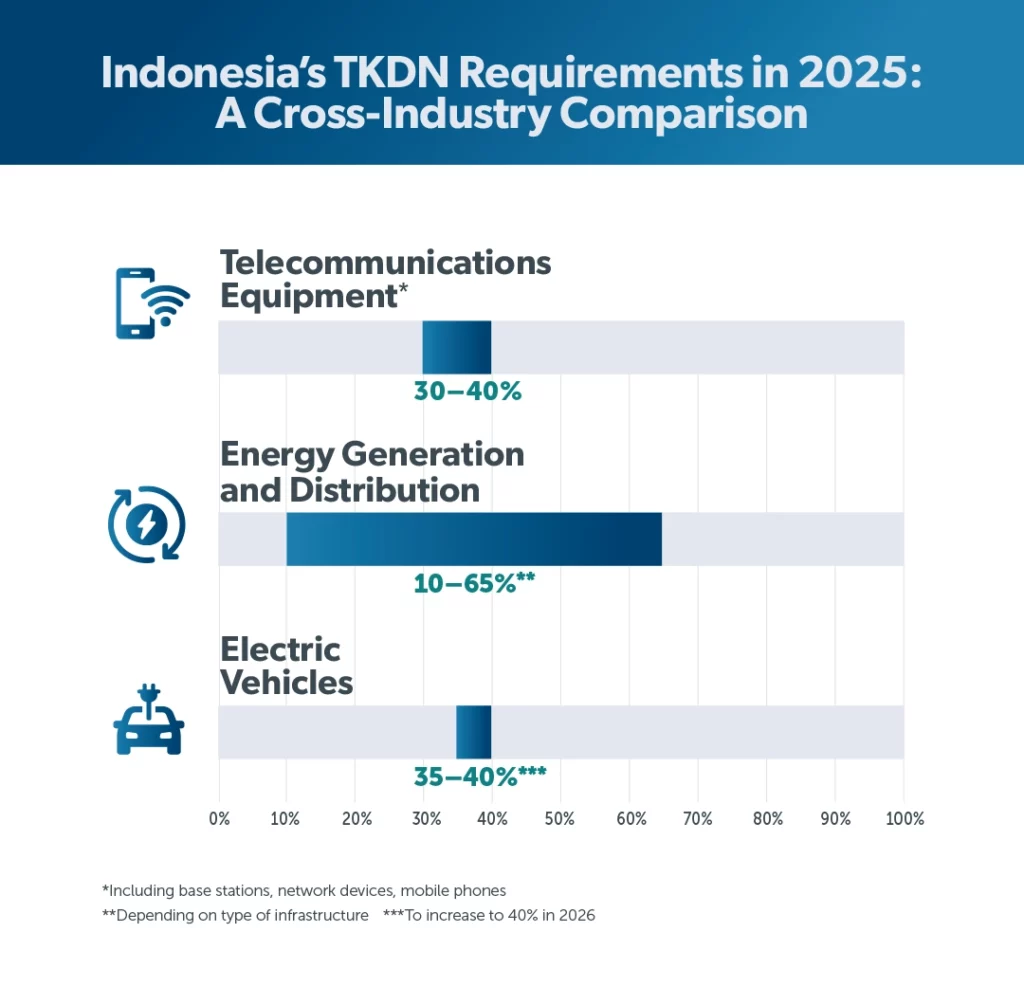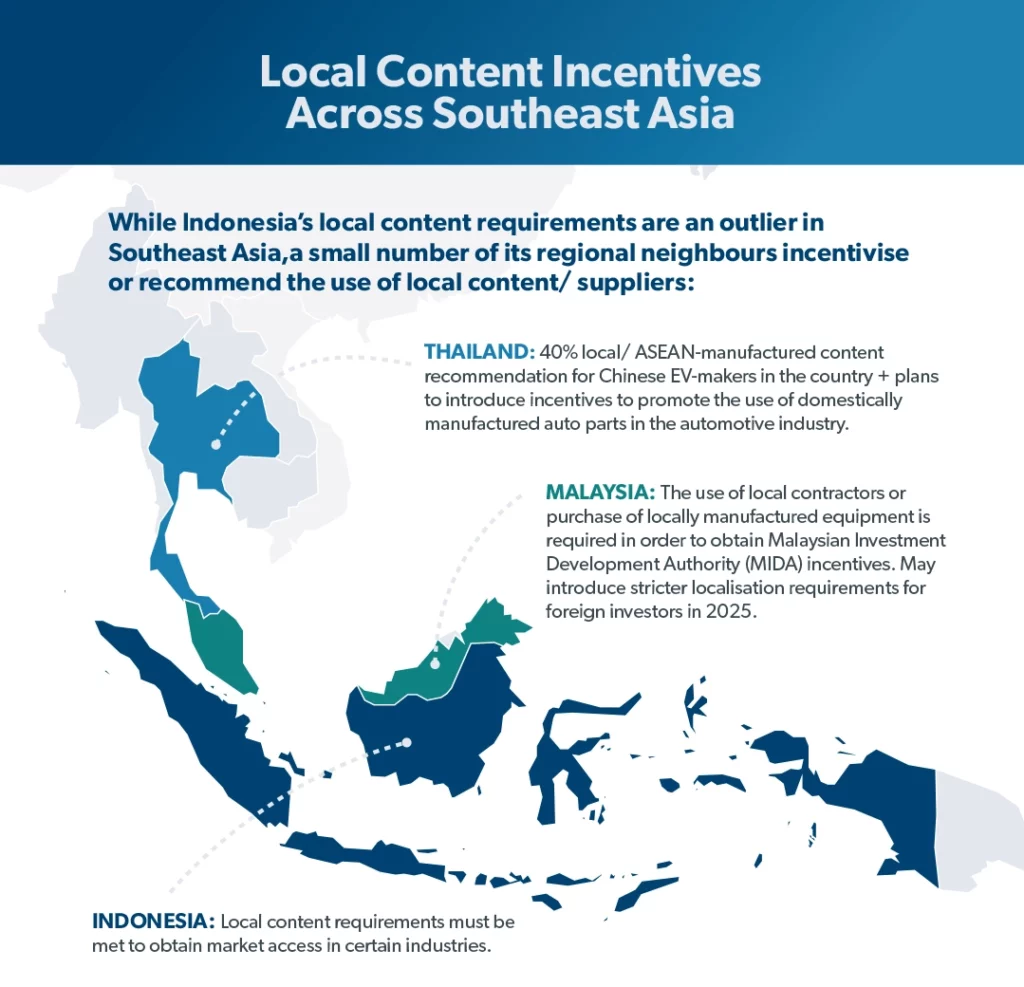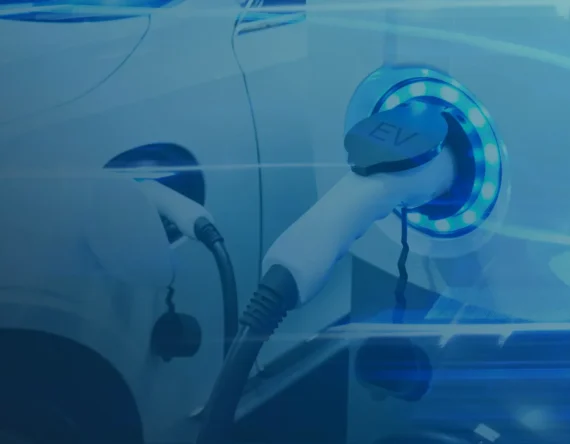Apple’s $300 Million Market Access Investment
After almost five months of negotiations, Apple’s iPhone 16 has been cleared for sale in the world’s fourth most-populous country, Indonesia. The ban on sales of the iPhone 16, which was introduced in October 2024, was the result of Apple’s failure to comply with local content requirements (or Tingkat Komponen Dalam Negeri – TKDN). The TKDN requirements are not new: the Ministry of Industry mandated that mobile phone manufacturers meet local content requirements from 2017 and has steadily increased the local content percentage required of mobile phones sold in-country.
In order to sell mobile phones in Indonesia, companies must obtain TKDN certification from the Ministry of Industry. This certification, which allows for three channels (investment in local manufacturing, local software development, or local innovation), is valid for a fixed period of three years before it must be renewed. Unlike manufacturers such as Samsung, OPPO, and Xiaomi that set up production facilities to produce hardware in Indonesia, Apple has opted for the innovation channel (through Apple Developer Academies) since the regulations came into effect. However, at the time of the October 2024 ban, the company reportedly had not fulfilled its investment commitments for the 2020 – 2023 period, with a shortfall of US$ 15 million.
In late February – early March 2025, following months of negotiations, the two parties came to an agreement which will allow sales of iPhone 16 and address Apple’s TKDN requirements until 2029, or for two certification renewal rounds (from 2023). In exchange for market access, Apple has pledged to: invest (via a supplier) US$ 150 million in an Airtag manufacturing plant in Batam; invest US$ 160 million that will go towards a research and development facility, an Apple Software Innovation and Technology Institute, and Apple Academies; and expand its supply chain to include a local manufacturer in Bandung that will produce an AirPod component. The company will also fulfil its previous obligations in full. In total, Apple and its suppliers have committed to investing more than US$ 300 million in Indonesia over the next four years. This is significantly more than the minimum in-principal investment sum required to achieve the 40% TKDN requirement, which is IDR 1 trillion (approximately US$ 60 million); an earlier US$ 100 million offer by Apple was rebuffed by the government, which said that the bid lacked “fairness” compared to its investments in neighbouring countries.
Common But Differential Treatment
This latest episode aligns with broader moves by the Indonesian government to develop domestic industry and bring in foreign investment through downstreaming policies in the nickel, copper, and cobalt mining industries. Similar local content provisions apply to the automobile, energy, and other industries.¹
However, the government has shown flexibility towards enforcing and maintaining these provisions, depending on the sector involved. Just a few months before the iPhone 16 ban, the Ministry of Industry relaxed existing local content requirements for renewable energy projects. In late July and early August 2024, a 2012 Ministerial Regulation that mandated local content requirements for energy infrastructure was revoked and replaced with new regulations that set significantly lower local content requirements for renewable energy power plants (solar, hydro, and geothermal) and allowed for exceptions to local content requirements under certain conditions, which include projects funded by foreign loans or grants.
All About the Money
Indonesia’s approach towards Apple vs its stance on green energy investments is reflective of national priorities. iPhones account for an estimated 12% of the smartphone market in Indonesia and there are ready substitutes from lower-priced competitors. They are considered a luxury good, and therefore non-essential, while Indonesia’s market size and growing smartphone penetration rates makes it attractive to Apple. With these considerations, the Indonesian government took a harder line against Apple in negotiations in order to extract more benefits.
It’s a markedly different situation when it comes to renewable energy projects. Indonesia is still some ways off from meeting its renewable energy targets, where it aims to have 23% of its electricity come from renewable sources by 2025 and 35% of the same by 2035. Data from the Ministry of Energy and Mineral Resources shows that by the end of 2024, renewable energy accounted for only 14% of the energy mix, against a 19% target. Comments made by PLN executives early in 2024 indicated that TKDN requirements for renewable energy projects were obstructing foreign financing for such projects, as international lenders such as the World Bank and the Asian Development Bank had no provisions for local content in their procurement processes.
These moves also show that Indonesia is willing to take calculated risks: it may flex its market access muscle when it comes to luxury consumer goods but in sectors where investment is sorely needed, the government may scale back restrictive measures in order to attract investors. With spending cuts to fund President Prabowo Subianto’s free lunch programme for students, foreign investment in infrastructure will be ever more important over the coming years. Looking beyond specific sectors, foreign direct investment as a whole is much needed, especially if the ambitious 8% annual growth targeted by Prabowo is to be met.
Navigating Compliance
The government will likely be flexible about how it acquires said investment; carrots and sticks, all options are on the table. Companies with Indonesia exposure will have to tailor their approach depending on the sector at hand and ensure their compliance with prevailing requirements to minimize the risk of following Apple’s example.
In some situations, compliance with nominal requirements alone may not be sufficient, as was the case with Apple’s US$ 100 million offer. Today’s organisations need a trusted partner to assist them in maximising the value of new market entry and mitigating the risks. Turn to Us for assistance with entry into new markets and insight into regulatory roadblocks in Indonesia as well as the wider region.
¹ TKDN calculation methodology has been released for the pharmaceutical industry but there are as yet no mandatory regulations that oblige pharmaceutical companies to obtain TKDN certification
If you have any questions or would like to discuss these topics please reach out to Jeen Loo or Jason Liew.
To receive StoneTurn Insights, sign up for our newsletter.










